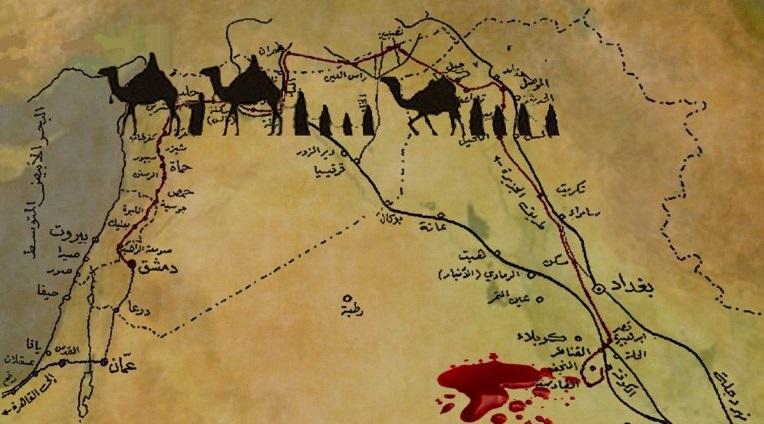Karbala, Arabic Karbala, also spelled Kerbela, city, capital of Karbala muḥāfaẓah (governorate), central Iraq. One of Shiite Islam’s foremost holy cities, it lies 55 miles (88 km) southwest of Baghdad, with which it is connected by rail.
According to Britannica.com, the city’s religious significance derives from the Battle of Karbala (680 CE), a one-sided contest in which al-Ḥusayn ibn ʿAlī, the Shiʿi leader and grandson of the Prophet Muhammad, and his small party were massacred by a much larger force sent by the Umayyad caliph Yazīd I.
Imam Ḥusayn’s shrine, located in the city, is one of the most important Shiʿi shrines and centers of pilgrimage, including the annual Arbaʿeen pilgrimage 40 days after the commemoration of Ḥusayn’s martyrdom. Wahhābī raiders destroyed it in 1801, but it was soon rebuilt.
Shiʿi Muslims consider burial in one of the city’s many cemeteries a sure means of reaching paradise. The city’s religious community has maintained close ties with coreligionists in Iran, as large numbers of Iranians visit the city during pilgrimages to Ḥusayn’s holy shrine.
Karbala still functions as a trade center and a departure point for the pilgrimage to Mecca. The city’s older section is enclosed by a wall, with the newer buildings to the south. Karbala has been a center of discontent with the country’s rulers. Civil discord was brutally put down there after the Persian Gulf War (1990–91). The city suffered little damage during the initial phase (2003) of the Iraq War, but it has been subject to violence since then.

